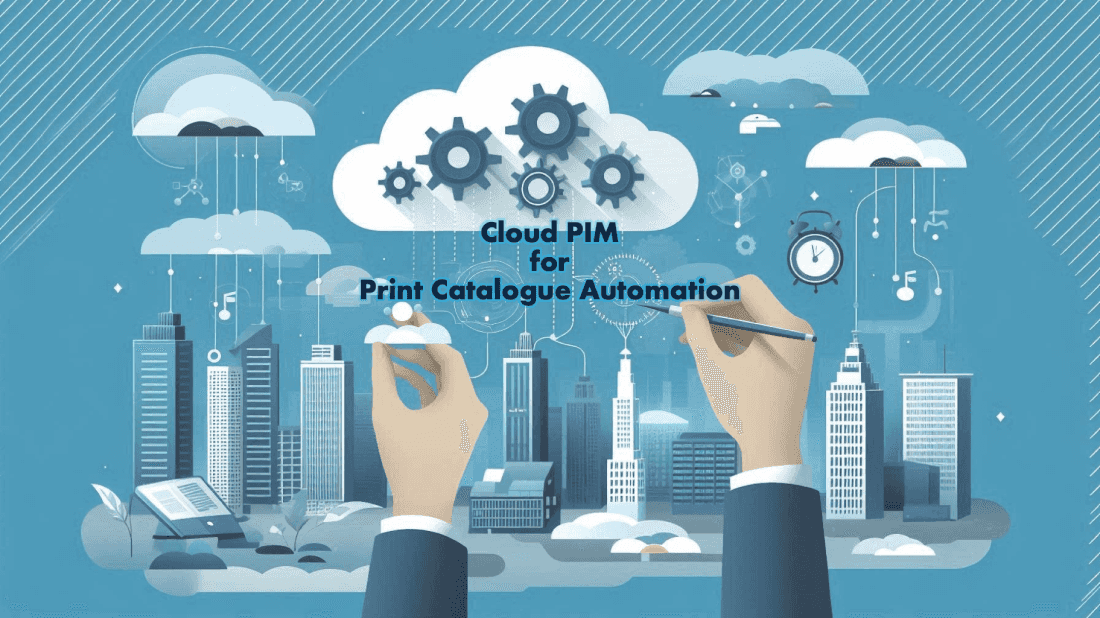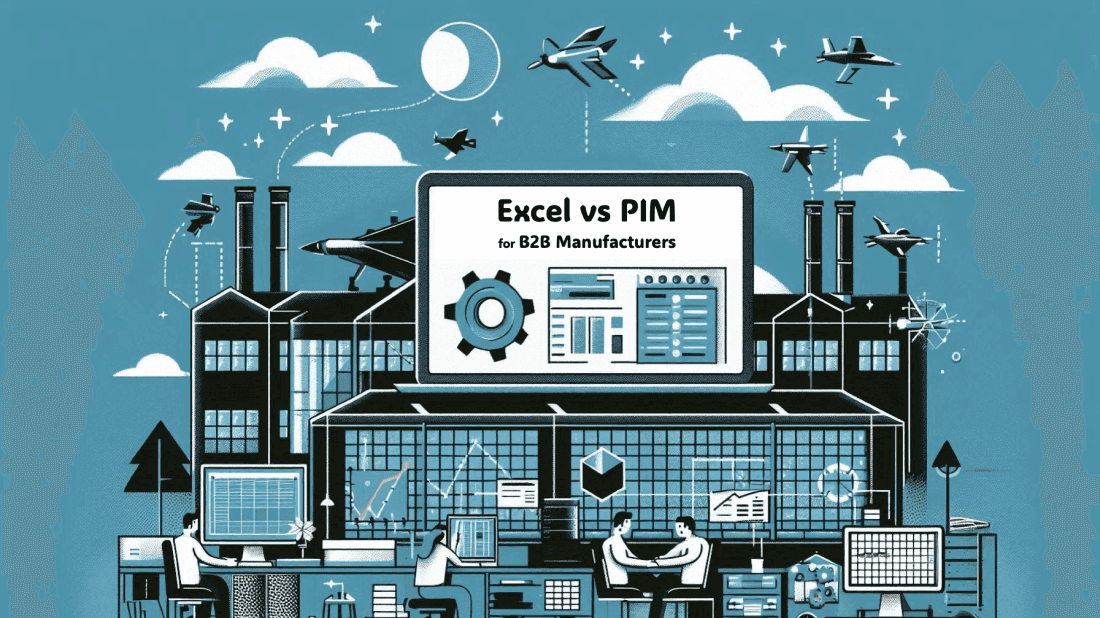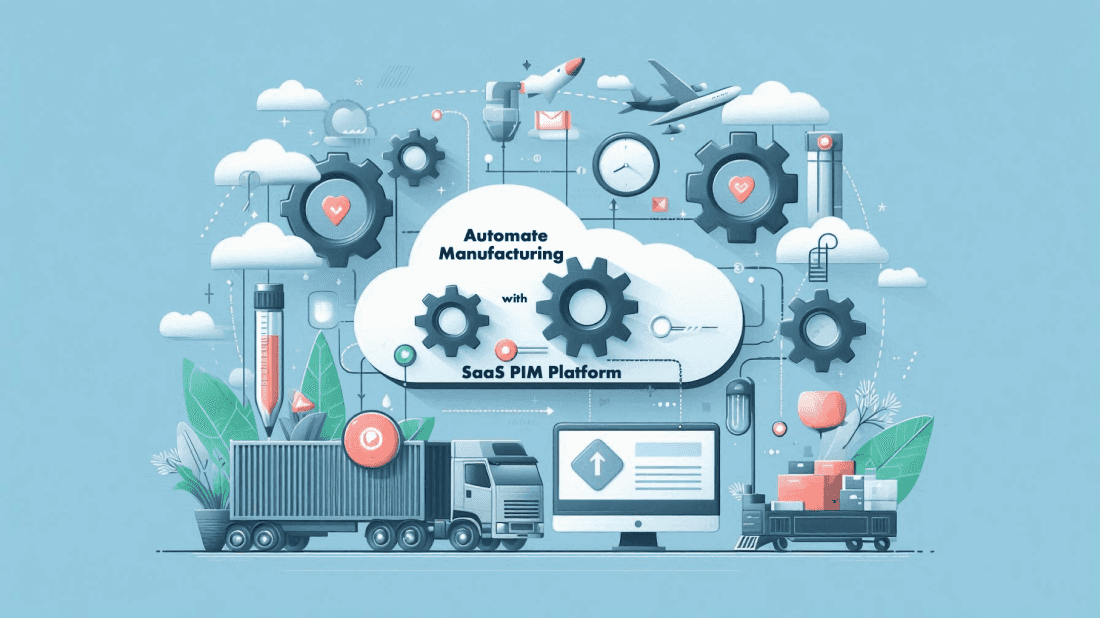Mar 24th, 2024
In today's digital era, leveraging Product Data Management (PDM) software can significantly enhance a business's competitive edge.
Leveraging PDM for Competitive Advantage
PDM software centralizes all product data, ensuring consistency and reducing errors, which streamlines decision-making and fosters collaboration among product teams.
This synergy between departments, including design, engineering, marketing, and sales, underpins the foundation for a great product experience and increases customer satisfaction.
PIM: The Gateway to Enhanced Customer Experiences
Product Information Management (PIM) software has evolved to become a vital tool for delivering detailed and engaging product content across various channels. This leads to greater consumer engagement and loyalty.
By integrating PIM software with e-commerce platforms, social media, and retail outlets, businesses can craft a cohesive narrative around their products, resonating deeply with customers and improving the overall customer experience.
The Synergy Between PDM and PIM Systems
The collaboration between PDM and PIM software is essential for managing product data efficiently across its lifecycle. PDM focuses on the internal aspects of product information, encompassing design and advanced manufacturing processes, while PIM extends this data to encompass customer-facing elements.
This ensures accurate representation of product content in marketing and sales channels, contributing to a superior product experience.
PDM in the Age of Smart Manufacturing
In the realm of smart manufacturing, the role of PDM software becomes increasingly critical. As production processes become more automated and reliant on precise data, PDM software ensures that IoT devices, robots, and AI analytics have access to real-time product data.
This integration is key to improving manufacturing processes, predicting maintenance needs, and ensuring high product quality.
Challenges and Opportunities in PDM Software Implementation
Implementing PDM software involves overcoming certain challenges, such as integrating with existing systems and adjusting to a new mindset that prioritizes the strategic use of product data for development. Despite these hurdles, the adoption of PDM and PIM software offers numerous benefits.
These technologies allow businesses to improve product management, and respond faster to market shifts, customer demands, and trends in advanced manufacturing.
PDM Software and Regulatory Compliance
In industries where regulatory compliance is critical, PDM software plays a vital role in ensuring that products adhere to the required standards.
By maintaining comprehensive records of product data, including materials, testing results, and compliance documentation, PDM software helps companies navigate complex regulatory environments, avoiding fines and product recalls.
Advanced Integrations and Customizations in PDM Software
Modern PDM software stands out for its adaptability, allowing seamless integrations with various product development tools such as CAD, ERP, and SCM systems. This interoperability ensures data consistency throughout the product development and management processes.
Furthermore, PDM software can be customized to meet the specific needs of different product teams within an organization, enhancing efficiency and innovation.
Data Security and Intellectual Property Protection
In today's digital landscape, the importance of data security and intellectual property protection cannot be overstated. PDM software is equipped with robust security features to safeguard sensitive product data and intellectual property against cyber threats.
These features include comprehensive access controls, data encryption, and detailed audit trails, thereby supporting global compliance with data protection laws.
The Role of PIM Software in Global Market Expansion
PIM software is invaluable for businesses aiming to expand into new global markets. It manages product content in multiple languages and ensures accurate localization of product descriptions, specifications, and marketing materials.
This capability is crucial for engaging customers in diverse regions and adapting to varied market demands. Additionally, PIM software facilitates the handling of various currencies and tax settings, which is essential for international e-commerce success.
Enhancing Collaboration Across Departments
The implementation of PDM and PIM software significantly improves collaboration across departments by providing a centralized source of accurate product data. This ensures that all stakeholders, from product management to marketing, work from a unified information base.
This alignment is essential for minimizing errors, accelerating product development cycles, and ensuring that the final product delivers a great product experience and meets customer expectations.
PDM, PIM, and Sustainability
Sustainability has become a pressing concern for consumers and businesses alike. PDM and PIM software play a crucial role in managing information related to a product's environmental impact, including materials used, energy consumption, and recyclability.
This information helps companies develop more sustainable products, comply with environmental regulations, and effectively communicate their sustainability efforts to customers, ultimately leading to improved product experiences and customer perceptions.
Conclusion: The Strategic Imperative of PDM and PIM
In conclusion, the strategic importance of PDM and PIM software extends well beyond simple data organization. These systems are pivotal for enhancing product quality, expediting time-to-market, enriching customer experiences.







